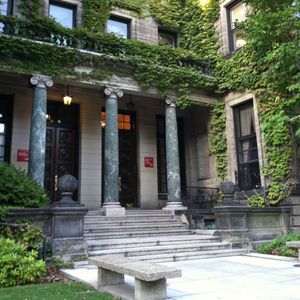BUCSA Hosts Two Lectures on Military Adventures from East Asia
 The Center for the Study of Asia, now part of the Frederick S. Pardee School of Global Studies, hosted two book talks this week that looked, separately, at the past and the future of military adventures from East Asia. The two separate events brought leading experts on Asia to Boston Univeristy to speak on a new Japanese perspective on Pearl Harbor (Amb. Takeo Iguchi) and on the emerging power struggle in the South China Sea (Bill Hayton).
The Center for the Study of Asia, now part of the Frederick S. Pardee School of Global Studies, hosted two book talks this week that looked, separately, at the past and the future of military adventures from East Asia. The two separate events brought leading experts on Asia to Boston Univeristy to speak on a new Japanese perspective on Pearl Harbor (Amb. Takeo Iguchi) and on the emerging power struggle in the South China Sea (Bill Hayton).
Ambassador Takeo Iguchi, former ambassador and author of Demystifying Pearl Harbor: A New Perspective from Japan, talked candidly about what he believes is a grave error in history surrounding the events leading to the the Japanese Imperial Army’s attack of Pearl Harbor in 1941. He made no excuses for his country’s treacherous act towards the United States, and believes that there was no conspiracy by the West to incite a European conflict, specifically with the Soviet Union, through the “back door of the Far East.”
He supported his assertion based on archived historical records that indicate a conspiracy among high-level officials to purposely delay the transmission of the final yet essential segment of a series of telegrams from Ambassador Nomura to President Franklin D. Roosevelt in which Ambassador Nomura stated that Japan was merely withdrawing from bilateral negotiations with the US and not declaring war. The telegram’s purpose was to thwart a declaration of war from United States, but high-level officials, according to Ambassador Iguchi, conspired to delay the transmission of the final part of the telegram.
To mark the 73rd anniversary of Pearl Harbor, Ambassador Iguchi stated that “Pearl Harbor diplomacy has been neglected” and called for a “reinvestigation, a reappraisal” of archived historical materials.
In another book talk, the BU Center for Study of Asia welcomed Bill Hayton, author of The South China Sea: The Power Struggle for Asia.
He argued that the ongoing dispute and control over gas and oil rich South China Sea territories will spell either peace or strife in the ‘Asian Century.’ China, he argued, is wielding its power in the region, while other sovereign claimants are redefining relations between and among each other. He discussed the possibilities of a full-blown military engagement and the importance of the US’s pivot to the region.
The full-house lecture held at the Pardee School of Global Studies segued into a though-provoking discussion among those present. Pardee undergraduate and graduate student exchange views on the matter with BU professors who are experts on the region.